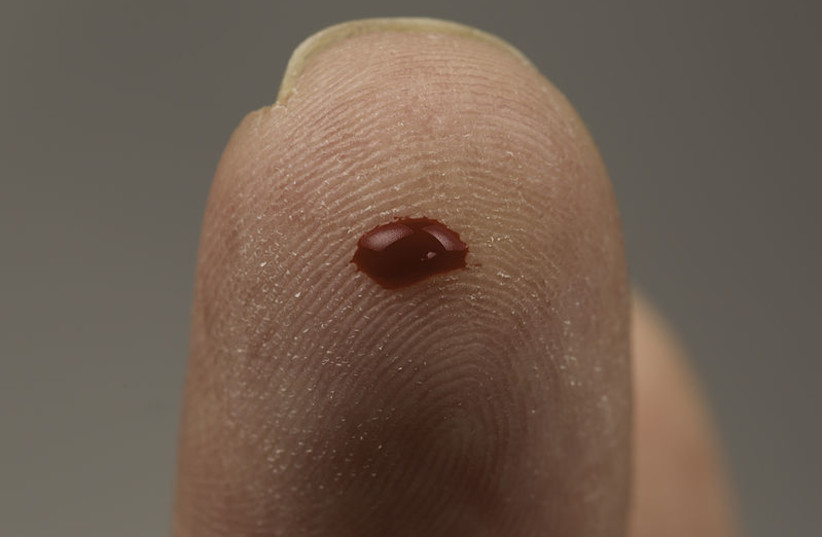
After the pandemic broke out, scientists and doctors alike became puzzled by one question, why are some people more susceptible to contracting, and even succumbing to the disease than others?
Several studies have researched the link that genetics play in susceptibility to contracting the coronavirus, and some more specifically have linked the role that blood type plays. The studies all came to a similar conclusion, that people with blood type O have less of a chance of getting the COVID-19.
Two studies came out of Wuhan, the epicenter of the COVID-19 outbreak, one that researched the link between blood types and COVID-19 susceptibility, and another that researched the link between blood types and the risk of and risk of SARS‐CoV‐2 pneumonia. Another study came out of Italy and Spain, that researched the link between genetics and SARS-CoV-2 respiratory failure.
However, the seemingly most popular, as well as most recent study, is ongoing research published by the personal genetics company 23andMe on the evidence that blood type plays a role in COVID-19. 23andMe is company that sends out personal genetics testing kits to individuals who are interested in finding out their genetic history and or their predisposition to certain genetically handed down diseases such as types of cancer.
According to their blog they did a study that contained more than 750,000 participants. Their preliminary data suggests that O blood type appears to be protective against the virus, and people with that type are between 9-18% less likely that other individuals to have tested positive for the COVID-19 virus.
But how does blood type actually play a role in infection?
While the answer is not exactly known, the leading scientist Andre Franke from the study done in Spain and Italy speculated the answer to the New York Times. He noted that the gene region that codes for blood type is associated with elevated levels of key immune molecules.
Their study included extracting DNA samples from 1,980 COVID-19 patients who were hospitalized for respiratory failure. They scanned the samples using a rapid technique called genotyping, and looked at nearly nine million genetic letters. The researchers then carried out the same experiment on 2,205 blood donors with no evidence of COVID-19. They found that the ill patients shared a number of similar genetic variants compared to those who were not ill.
The scientists were looking for spots in the genome called loci, which they ultimately found. In one of those spots is the gene that determines blood type. Their analysis showed higher risk for A-positive individuals and a protective effect for blood group O.
The researchers in Wuhan came to a similar conclusion. After eliminating other confounding risk factors such as age, gender and comorbidities, the team investigated and confirmed the association of ABO blood groups and risk of SARS-CoV-2 pneumonia in patients from three hospitals in Wuhan. In short their findings also found that people with blood type A were at higher risk of hospitalization while O patients had the lower risk.
Other past research done in 2005 during the SARS epidemic supports O blood type protection idea. Research on a Hong Kong hospital analyzed the fallout from an infected patient that exposed 45 healthcare workers. Of 18 people with type blood O, 8 became infected in comparison to the other 26 people with other blood types of which 23 contracted the virus.
Blood type is determined by specific sugar molecules that are added to proteins or lipids on our blood cells and other cell types, according to Chemical Science and Engineering news. Those that are in the A blood type group carry A sugar antigens, the same goes for people in the blood type B with B-antigens, however O blood type have neither.
This means that the immune systems of people with type A blood develop antibodies for B antigens, people with type B blood have antibodies for A antigens, and people with type O blood have antibodies for both. Blood type influences blood clotting and a growing body of evidence suggests that COVID-19 pathology often involves overactive blood clotting. People with type O blood have lower levels of proteins that promote blood clotting.
SARS-CoV-2 can replicate in cells that express blood type antigens, Jacques Le Pendu, a glycobiologist at the University of Nantes told Chemical and Engineering News. This means that when an infected person coughs or sneezes there's a possibility that they release viral particles coated in their blood type antigens. Explained more in depth, a person in the blood type O group will have antibodies against virus transmission from someone in the blood type A group. These antibodies can fight the virus. However, a person in the blood type A group won't have those same antibodies.
"type" - Google News
June 15, 2020 at 03:30PM
https://ift.tt/3d3tHtm
People with blood type O more protected against COVID-19 - studies - The Jerusalem Post
"type" - Google News
https://ift.tt/2WhN8Zg
https://ift.tt/2YrjQdq
Bagikan Berita Ini














0 Response to "People with blood type O more protected against COVID-19 - studies - The Jerusalem Post"
Post a Comment